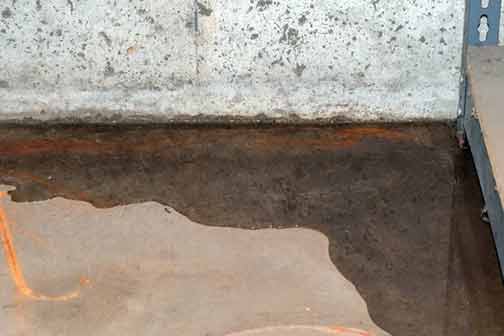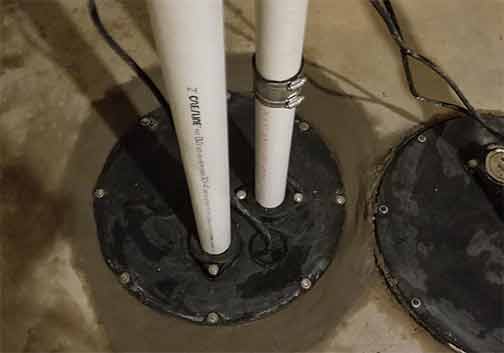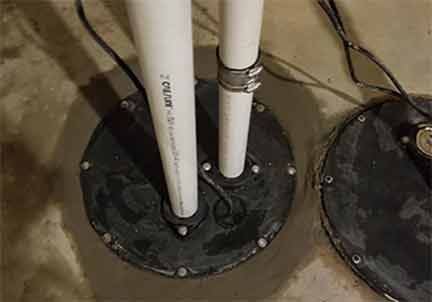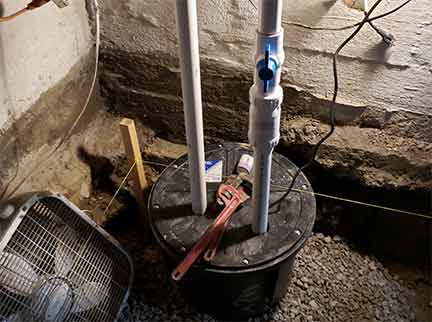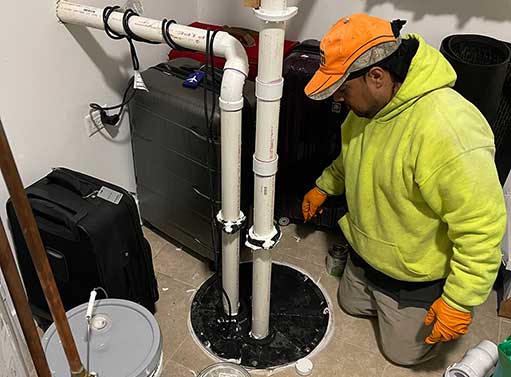
Whether you are a homeowner, business owner, or simply interested in understanding how sewage systems work, this article will provide you with all the information you need. From what a sewage ejector pump is to how it operates and the importance of regular maintenance, we’ve got you covered.
What is a Sewage Ejector Pump?
Before we get into the specifics, let’s start with the basics. A sewage ejector pump, also known as a sewage grinder pump, is a crucial component of many sewage systems in Chicago. Its primary purpose is to remove wastewater from lower levels of a building and pump it uphill to the main sewer line.
Unlike a regular sump pump that deals with just water, a sewage ejector pump is designed to handle solid waste, including toilet paper, human waste, and other debris that enters the sewage system. With powerful grinding blades, these pumps macerate the waste, ensuring smooth flow through the sewer pipes.
Now that we have a basic understanding of what a sewage ejector pump is, let’s explore its operation and why it’s essential for many properties in the Chicago area.
How Does a Sewage Ejector Pump Work?
A sewage ejector pump is typically installed in the basement or lower levels of a building. It is connected to a basin, also known as a sewage pit or a sump pit, where wastewater collects. When the wastewater reaches a certain level, the pump’s sensors are triggered, activating the pump.
The pump’s impeller, a rotating device with blades, starts spinning rapidly, creating a powerful centrifugal force. This force enables the pump to macerate the solid waste into smaller pieces, making it easier to pump through the sewer pipes.
As the waste is macerated, the sewage ejector pump forces it through a discharge pipe connected to the main sewer line. The pump continues to operate until the water level in the sewage pit lowers, at which point it shuts off automatically.
The Importance of Sewage Ejector Pumps in Chicago
Chicago is home to countless residential and commercial properties. Many of these properties are equipped with sewage ejector pumps to overcome challenges posed by the city’s unique topography.
Due to its flat geography, Chicago relies on sewage ejector pumps to transport wastewater from lower-lying areas to the city’s sewer system, which lies at a higher elevation. Without these pumps, it would be impossible to efficiently drain wastewater from basements and lower-floor bathrooms or kitchens.
By effectively macerating and pumping solid waste, sewage ejector pumps minimize the risk of sewer backups, sewage overflows, and related issues that can cause significant damage to properties and pose health hazards.
Additionally, sewage ejector pumps are essential in areas where septic systems are in use. These pumps help lift effluent from septic tanks to sewer lines, ensuring proper disposal and preventing contamination of groundwater sources.

Periodically clean the sump pit to remove any debris or sediment that may accumulate. This will prevent clogs and promote smooth pump operation.
Sewage Ejector Pump Maintenance
Regular maintenance is key to ensuring the optimal performance and longevity of your sewage ejector pump. By following these maintenance tips, you can prevent potential issues and avoid costly repairs in the future:
Ejector Pit Cleaning
Periodically clean the sump pit to remove any debris or sediment that may accumulate. This will prevent clogs and promote smooth pump operation.
Check the Float Switch
Make sure the float switch is free of obstructions and moves freely. The float switch is responsible for activating the pump when the water level rises.
Test the Pump
Regularly test the pump by pouring water into the sump pit until the float switch activates. This will help identify any issues before they escalate.
Inspect the Discharge Pipe
Check the discharge pipe for any signs of leaks, cracks, or blockages. A damaged pipe can lead to reduced pump performance and potential sewage backups.
Professional Inspections
Consider scheduling professional inspections of your sewage ejector pump system annually. A qualified Chicago plumber can identify and address any underlying issues.
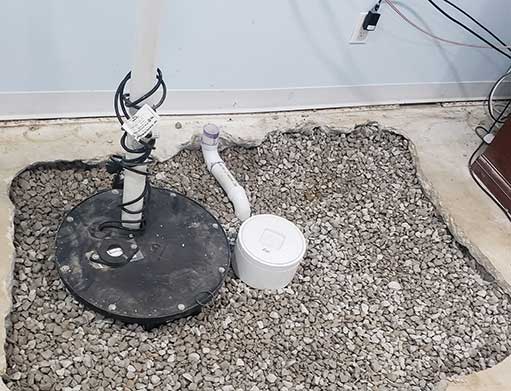
Decide whether you prefer an electric-powered pump or one that operates on a backup battery system. Electric pumps are reliable but may need a generator during power outages.
Choosing the Right Sewage Ejector Pump
When it comes to selecting a sewage ejector pump for your property in Chicago, there are a few factors to consider:
Pump Capacity
Determine the average daily wastewater flow rate in your property to choose a sewage ejector pump with sufficient capacity. A pump with inadequate capacity can lead to pump failure and backups.
Power Source
Decide whether you prefer an electric-powered pump or one that operates on a backup battery system. Electric pumps are reliable but may need a generator during power outages.
Brand Reputation
Research different brands and models to find reliable and reputable manufacturers. Look for models with positive reviews and a proven track record.
Qualified Installation
Ensure your sewage ejector pump is installed by a qualified professional to guarantee proper functioning and compliance with local building codes.
Sewage ejector pumps play a vital role in Chicago’s sewage systems, allowing properties to efficiently remove wastewater from lower levels and preventing backups and overflows. By understanding how sewage ejector pumps work, the importance of maintenance, and the factors to consider when choosing a pump, you can ensure the optimal performance of your system.
If you are in Chicago and require assistance with your sewage ejector pump, don’t hesitate to contact a professional plumber specializing in flood control systems. With their expertise, you can keep your sewage system in top condition and enjoy a clean and functional property.
Remember, regular maintenance and prompt repairs are critical to avoiding costly damage and maintaining a safe environment for you and your community.
—
